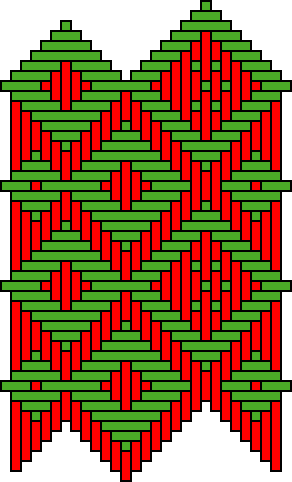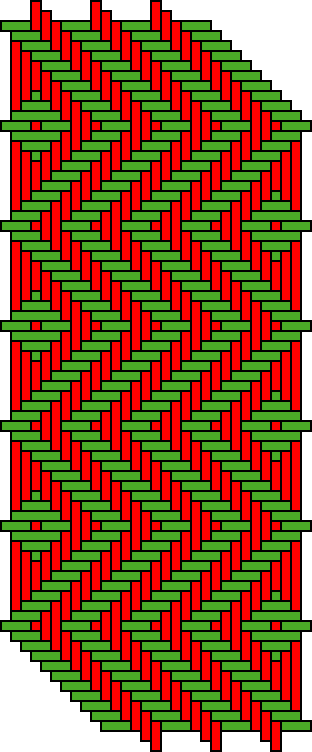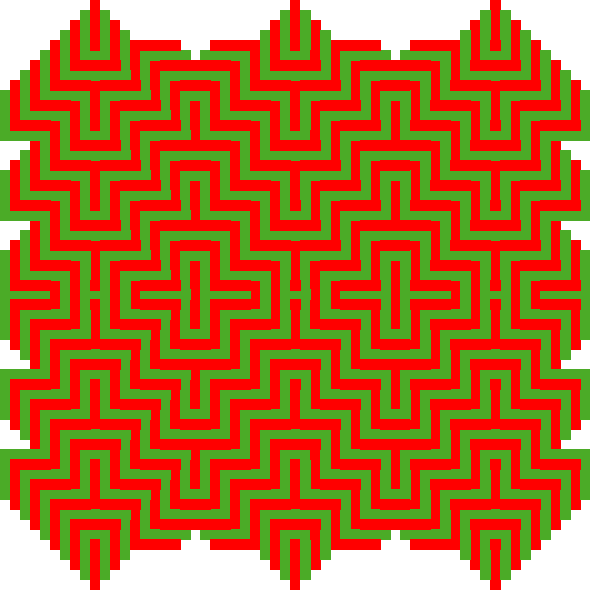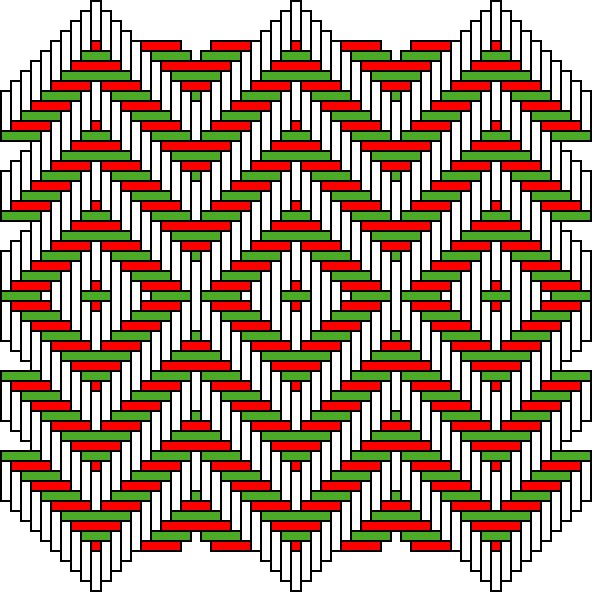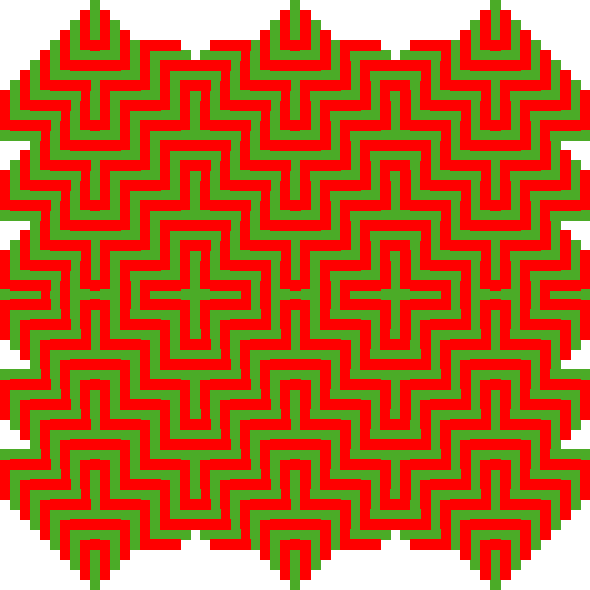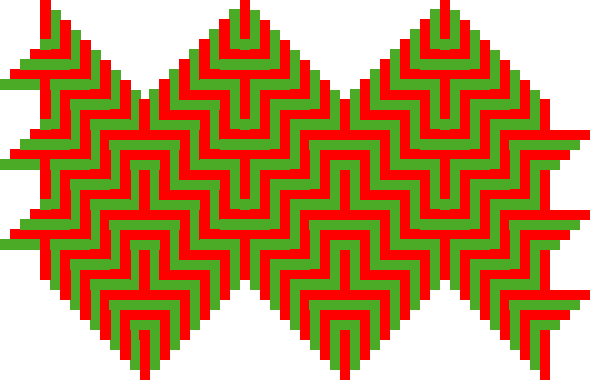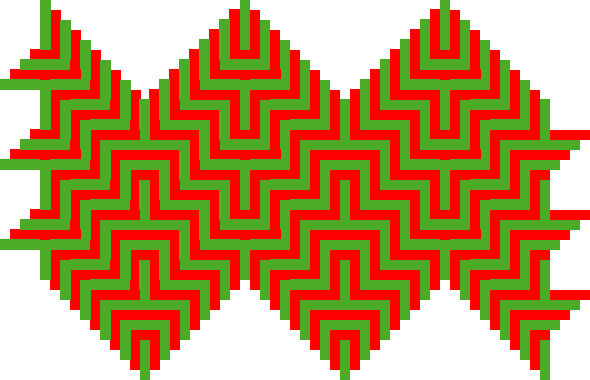|
in Northeastern Congo Paulus Gerdes Mozambican Ethnomathematics
Research Centre, C.P. 915,
Abstract The Mbole population (about 150,000
in 1989) belong to the peoples of the Mongo group. The Mbole inhabit the
equitorial forest in northeastern Congo living on both sides of the Lomami.
The exhibition catalogue (Bral, 1984) contains photographs
of winnowing trays, sieves and other baskets from the Mongo group. Mbole
men make fish traps and weave wall and roof mats. Women weave baskets,
sleeping mats and also smaller rectangular mats called losa in their language,
Mbole-ena (Mantuba-Ngoma, 1989, p. 9). The losa are decorated
in a symmetrical way with design motifs denominated as kengo, that is tattoos,
as they are also used in body tattooiing. Most frequently bands of strands
in the two perpendicular directions are differently coloured to underline
the design motifs. Figures 1 and 2
present examples of design motifs on losa mats.
Among the 39 losa mats exhibited in Germany in 1990 (Jens, 1989) there is one that is exceptional in the sense that strands of two colours alternate in both weaving directions. Its design represents lola, clouds (see Figure 3). Figure 4 exemplifies
the weaving texture that underlies this lola design. The basic weave is
the ‘over four, under four’ twill (4/4). The texture is characterised by
five equidistant, vertical discontinuity lines and one central horizontal
discontinuity line. By alternating the two colours in both weaving directions
this weaving texture is either transformed into the lola design (Figure
3) or into the design presented in Figure 5. Below
the horizontal central band of toothed squares, woven zigzags appear. Figure
6 singles out the two possible, distinct colour transformations of
these woven zigzags.
Figure 1
Figure 2
Figure 3
Figure 4
Figure 5
Figure 6a
Figure 6b
References Jahn, Jens (Ed.) (1989), Losa, Flechtwerke der Mbole, Verlag Fred Jahn, München Mantuba-Ngoma, Mabiala (1989), Die Flechtwerke
der Mbole in Nordost-Zaïre, Schönheit und Reichtum einer Dekorkunst,
in Jahn, 7-16
|
